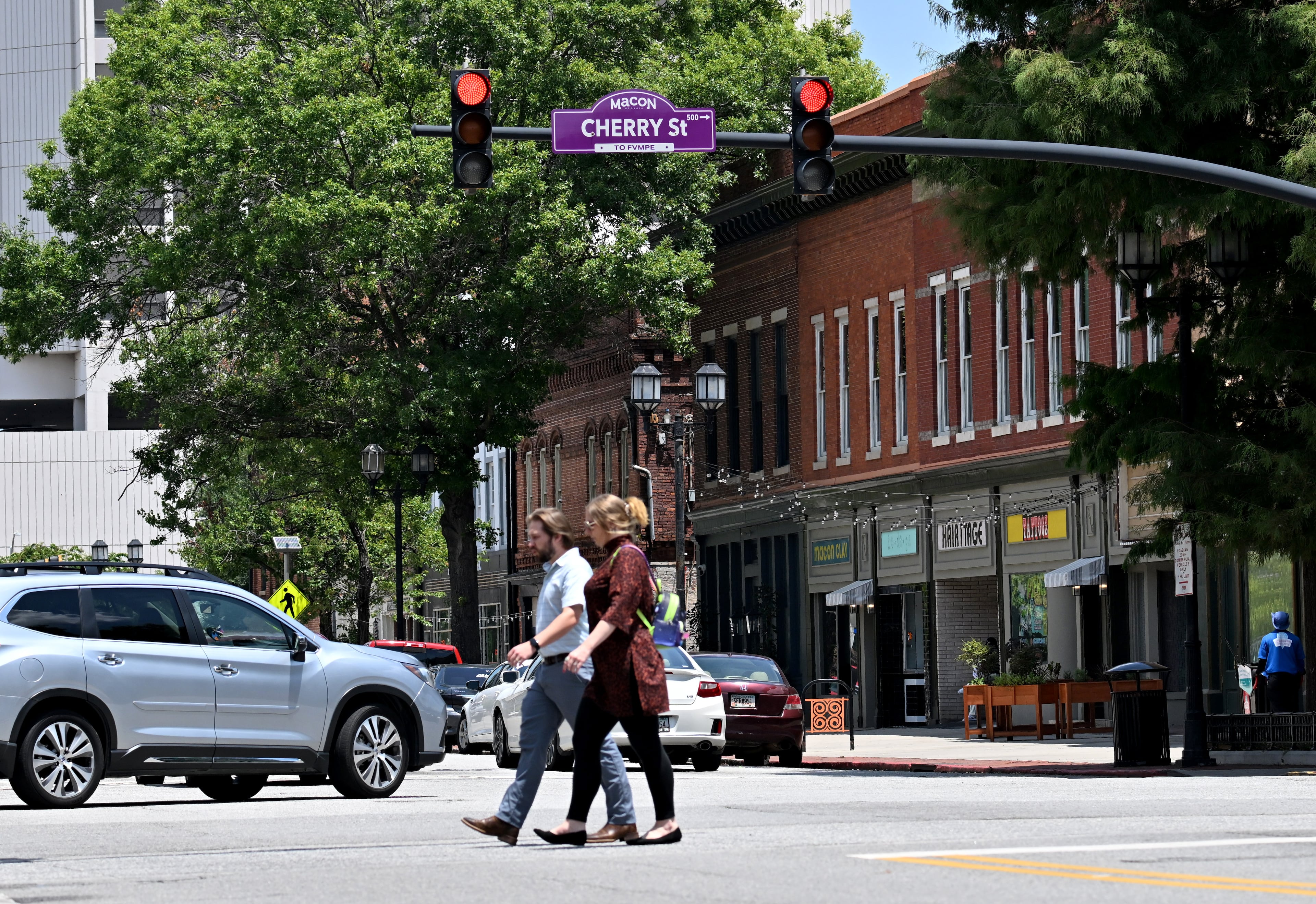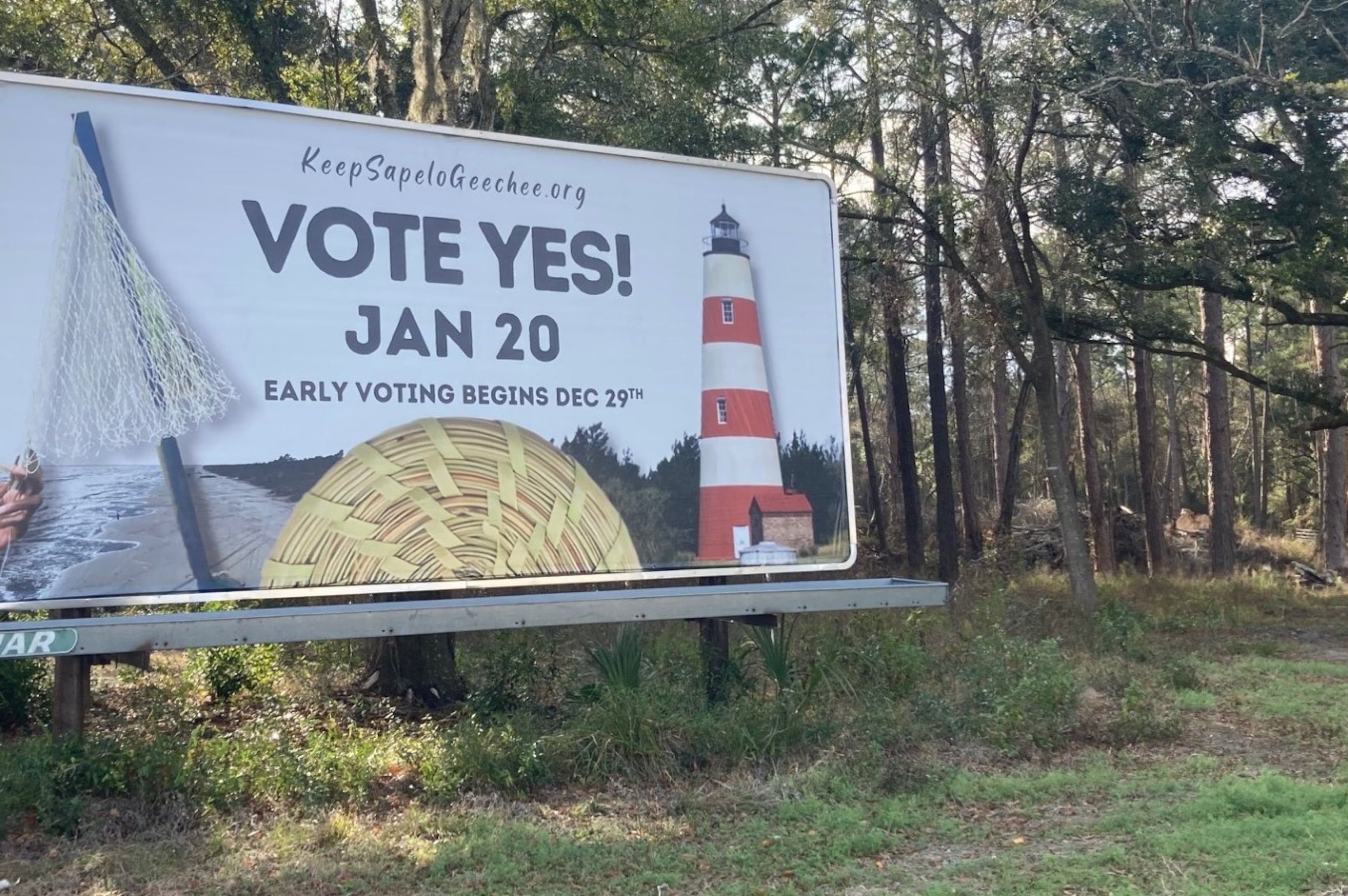Words of Muscogee (Creek) take prominent perches on Macon street signs
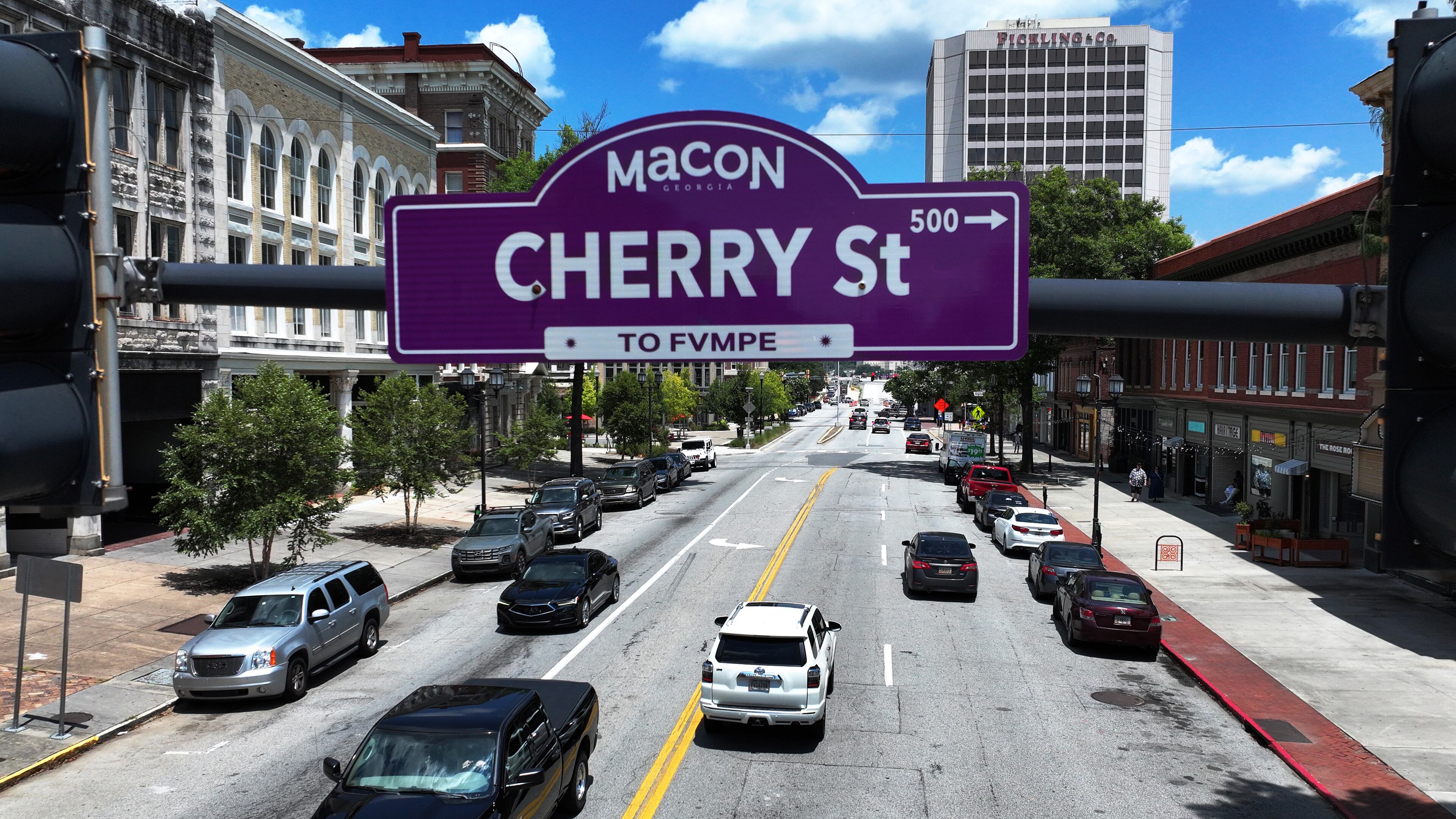
MACON — Barely a mile west of the Great Temple Mound, a sacred, handmade mountain of earth that peeks above treetops near the Ocmulgee River here, words from its Indigenous builders’ language now appear on street signs in the heart of this city’s downtown.
Phonetic Muscogee translations of English words accompany more than 60 new street signs amid efforts to bring national park status to the Ocmulgee Mounds National Historic Park.
The park is home to the iconic and pyramidal temple mound, which rises 55 feet and was erected roughly 15 centuries ago by builders who piled some 10 million baskets of dirt. That civilization’s ancestors are now playing a leading role in renewing and cementing ties to Middle Georgia.
In January 2023, Macon raised the flag of the Muscogee (Creek) Nation alongside its city banner.
Macon officials struck on the idea for the street signs after a contingent of Maconites traveled in 2022 to the present-day Muscogee (Creek) capital city of Okmulgee, Oklahoma. There, they saw street signs in English and Muscogean and decided to do likewise in Macon.
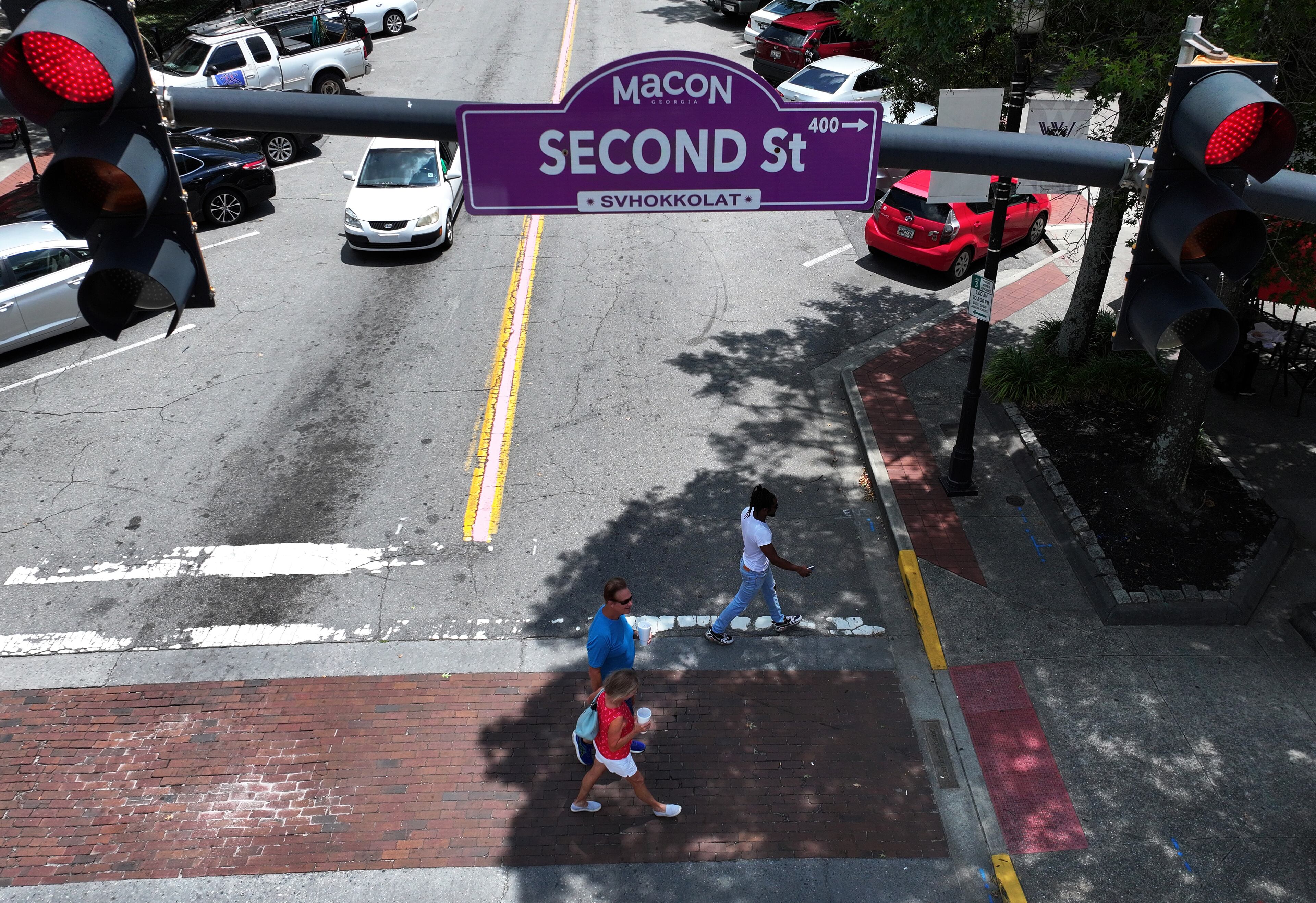
The signs, funded by a $75,000-plus private donation, were installed this spring along streets with names like Cherry, Poplar and Mulberry, as well as others named numerically. Cherry Street, for instance, is translated as “TO FVMPE.”
“It sparks a really awesome curiosity, like, ‘Why are you doing this?’” says Seth Clark, Macon’s mayor pro tem. “The questions are great. From out-of-towners, the questions are great, but for folks from here, it’s a really strong reminder of the connection we have to the tribe still and the potential for a stronger connection, too.”
In what is known as the Trail of Tears, thousands of Muscogee (Creek) and other Native American peoples from Georgia, including around Macon, were forced in the 1830s to march and resettle west of the Mississippi River.
Clark is executive director of the Ocmulgee National Park and Preserve Initiative, an organization helping orchestrate a grassroots effort and a Congressional push toward national park status for the mounds.
“And we’re not waiting for Congress. We don’t need their permission to grow a relationship with the tribe,” Clark says. “These words being on these streets are too important to wait for Congress to get it together and vote on this thing. … We’re doing this because it’s the right thing. This is proper behavior of a national park gateway community. This is what we should be doing, and it shows we have skin in the game.”
A handful of other cities across the country, ones in Massachusetts and Washington state among them, have in recent years added corresponding words from their Indigenous people’s languages to road-name signage.
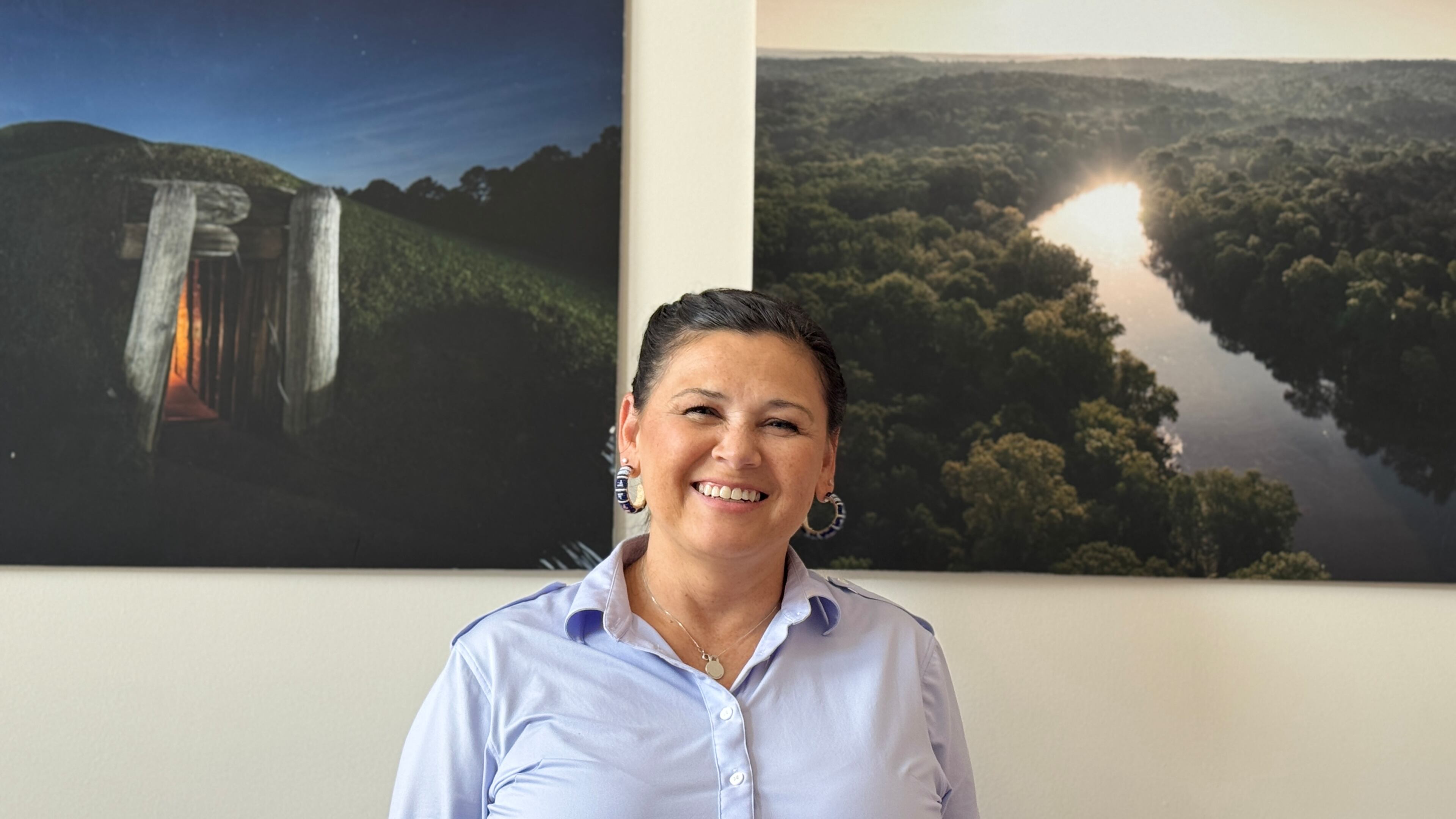
Macon’s efforts are more than a goodwill gesture, says Tracie Revis, a past chief of staff for the Muscogee (Creek) Nation in Oklahoma. She moved to Macon a few years ago to help Middle Georgia reconnect with its original inhabitants and establish a government-to-government relationship.
“It’s also reconciling the truth in this community,” says Revis, who is director of advocacy for the Ocmulgee National Park and Preserve Initiative. “It’s creating a relationship with the (Muscogee-Creek) Nation and Bibb County, truly creating partners.”
She says Macon’s flying of the Muscogee (Creek) flag was a first step toward “a true commitment.”
“That commitment is what has led to all of these other items,” Revis says. “So while other folks may be doing one thing, ‘Oh, OK, we checked a box,’ we are building upon it here in Macon.”
She says the new street signs have been welcomed by visitors and locals alike.
“They should be named properly,” Revis says. “That (Muscogee) language is still a living language, and it should be there.”
